“Serbia, through proxy Russia, blocks Kosovo settlement“
Friday, 27.07.2007.
18:16

“Serbia, through proxy Russia, blocks Kosovo settlement“
B92: Mr. Ambassador, if you agree, I would like to start with something that would qualify for a daily piece of news. The Serbian foreign minister left for the United States and he's going to meet on Friday with Ms. Condoleezza Rice, having in mind that there will be a new round of negotiations on the future status of Kosovo, and keeping in mind the position of the States, that was repeated just two days ago when the delegation of Kosovo Albanians visited Ms. Rice, what could we expect from that visit?Polt: It affords another opportunity for both sides to sit down and discuss the way ahead for what we consider to be the final time to find a way to deal with the status of Kosovo, which must be resolved. The status quo is unacceptable, and both sides need to try to see if they can come closer together in terms of their view for the future.
B92: If we are now facing a new round of negotiations, how do you estimate your previous statements when you were saying that it is very likely Kosovo will become independent before the end of 2006, or that the United States would never agree to an extra round of negotiations?
Polt: We didn't say we would never agree, we said we were against another round of negotiations. We feel that the Ahtisaari process was long enough and gave plenty of opportunity for both sides to bring their positions to the table, to discuss them.
The Ahtisaari plan, in our view, is a well conceived plan, a plan that in the vast majority of its content really addresses the key issue of what to us—and we believe to the Serbian people—is the key issue of Kosovo, and that is the safety and security of Serbs living in Kosovo. In that context, we would not believe that another 120 days are necessary or particularly useful, but we want to leave no stone unturned.
Serbia wants it, Russia blocked the process in the Security Council, so therefore we had to put the process in the Security Council on hold and now had to move into this other phase of negotiations outside the context of the Security Council, and we hope that something can be achieved in the 120 days. This for us is the last time to go ahead and find a solution.
B92: But if we are moving into another phase, is now the right moment to say that in spite of all the efforts of President Ahtisaari, his plan clearly isn't good enough to be accepted by all the relevant countries and states that decide on the future of Kosovo.
Polt: You know, I refuse to define a plan simply on the basis of whether everyone likes it. A plan is good by itself in terms of its content and objective analysis of what it provides. Of course, if a plan in the end result makes a recommendation that one or another side in the negotiation disagrees with they're going to hate the plan, and the one that it goes closer to their position, they're going to like the plan. But let's put those two sides, Belgrade and Priština, aside for a moment—
B92: But actually it's more than two sides.
Polt: That's true, that's what I'm getting to. In other words, let's look at it objectively. America looks at this plan from, what is, in our opinion, the objective reality on the ground and what can best be achieved. The majority of our European Union partners look at it in the same way. Our NATO partners look at it the same way.
The Secretary-General of the United Nations looks at it the same way, and looks at the plan and says, this is a good plan, the best plan that could be achieved under the circumstances. We don't think that there's a better plan out there that can be achieved.
However, we want to again emphasize that we want to add this 120 days to see how much more can be done, because we do not want one side or the other to feel that it got everything and the other side got nothing. We don't believe that's the case, but we want to try to give it another opportunity.
B92: What can be done if the message from Washington to Priština is: just be patient, independence is at the end of the road; we still firmly support independence as the only solution. What kind of pretext does that kind of attitude give for the future negotiations?
Polt: First of all, you're right. The president of the United States has spoken about what the U.S. policy is and it's very clear, it's on the record: that is our policy, that is where the United States stands. Over, out. But, the opportunity you have for Belgrade and for Priština is this is not our country.
This is not, in terms of the end result, ultimately what we have to live with. It is for Serbia to live with. It is for the people in Serbia, the people in Kosovo, the people in Priština, and all the other communities in this country to live with. I think it's a bit too simplistic and too easy for Serbia or the people in Priština to argue that it's the international community's responsibility to deliver or to settle for or to somehow accommodate the problems that were caused by the breakup of a country: the breakup of Yugoslavia.
The ultimate responsibility has to be faced by the people who are living here and the people who lead here. Those are the ones who you should be asking the questions to: How will you deal with this reality which now exists on the ground?
B92: Yes, but with all due respect, the decision on the future status of Kosovo was supposed to be made in the Security Council where neither Belgrade nor Priština have their say, so I hope that you are not trying to escape from the argument of responsibility that the U.S. as a leading country has—and the other countries involved in this process. Because it is you who are going to decide what the final proposal will look like.
Polt: I agree with you. No, quite the opposite. Not only are we not trying to escape, but our continuous attempts to introduce resolution after resolution in the Security Council and by having a UN envoy appointed by the Secretary-General bring forward a plan, which the Secretary-General welcomed, which the majority of the Security Council welcomed as the way ahead, and was only blocked because Serbia, through its proxy, Russia, blocked a resolution.
If Serbia had not blocked the resolution through Russia, the issue would be done. It would be finished and we could move ahead and start addressing the positive future for both Serbia, as well as for Kosovo, in Europe and in its relationship with the United States. That would have been our preference, that was our responsibility. We exercised our responsibility fully, Serbia, with Russia's help, blocked it.
B92: Do you mind being called a proxy of the Kosovo Albanians?
Polt: Oh, absolutely. Because we're not. We only work for one country. I'm the ambassador of only one country: the United States of America. I don't work for Albanians, or for Serbs or against Albanians or against Serbs, or for or against any country at all. I look at the American interest. The American interest in Europe is very clear, it's very easy to understand: a Europe whole, free and at peace. It is a very practical concept.
It is not a university seminar lecture, it is not a philosophical construct to be poured over in books over the next 20 years, it is an issue for today and now. The rest of Europe has already moved with amazing speed in the direction of this vision, Serbia is an outlying remnant that has not yet embraced that idea fully.
B92: But I have to go back to what you said. You don't think that Russia is pursuing its own goals and that it is also a legitimate attempt to, while helping Serbia, perhaps look for a better solution—
Polt: I agree with the fact that Russia's pursuing its own goals, whether it is better for Serbia and the Serbian people is for the Serbian people to decide. You actually now hit a very critical point. It is not for Russians, or Europeans, or Americans to decide what's good for the Serbian people, the only ones who can do that is you.
You decide: are you better off in Europe, with relations with the United States—and a good relationship with Russia, of course; Russia is an important country. But are you better off in the EU and the Partnership for Peace in NATO in a successful economic, European forward looking environment or are you off as a partner with Russia, against Europe and against the United States. Is that better for you in your future? Whatever decision you make, it's yours to make and we will have to respect your decision.
B92: I agree, it's just that the way you described Russia's involvement as being proxy to Serbia, and the American involvement as pursuing the interests of your own country was a bit puzzling. I'm sure you're aware that many people believe that the problem that occurred in resolving the Kosovo issue lies not solely in Belgrade, but in Washington as well.
And as a basis, has the prematurely given promise to Kosovo Albanians that Kosovo would be independent at some point. And, that is not only the argument that I'm sure you've heard in Belgrade, but that is something that your colleagues, foreign diplomats, would say off the record that the United States never left for space for maneuvering.
Polt: This is a typical copout. It's a Serbian copout, and I hope you can translate it into Serbian. The responsibility for Serbia's future lies with Serbia. It doesn't matter what America says, it doesn't matter what Russia says, it doesn't matter what Europe says—
B92: Surely you are not serious.
Polt: No, I'm serious. I'm serious on a very basic level. I'm not saying it doesn't matter what we say because we're very important countries, that's not what I'm trying to imply. But in terms of your future, the most central opinion that counts is Serbian opinion.
You are continuously looking at what the great players are saying about your future and how does that affect us instead of saying "We are going to be the masters of our own state and we will go ahead and do whatever we have to do." To go ahead and either achieve it or not achieve it, or achieve part of it and not the other part.
Despite everything that has happened, I simply do not accept the premise that Belgrade was ever prevented from engaging on its own with Priština to discuss whatever it wanted to discuss and to come to whatever agreement it wanted to come to. And nothing would have made America happier than for Belgrade to come to us with Priština and say, "Look, thanks for your help, but we don't need it. We have our own solution and this is it." And I can assure you, America would have said, "We applaud you for it, good luck and move ahead."
B92: Being an experienced politician, are you saying now that none of your colleagues from Washington have ever promised Kosovo Albanians that they would get independence?
Polt: Since I don't what every single thing all of my colleagues said—
B92: Well, the key players. Let's mention the key players, Madeleine Albright, Holbrooke, people who were in charge in the region, people who were here in 1998, in 1999.
Polt: I can say this, no alliances were formed and I can only speak for this administration which I work for. I can speak for this president who I work for, and this secretary of state who I work for.
We entered into the Ahtisaari process, with Mr. Ahtisaari at its head, in an open ended fashion, in a completely open mindset to see if the two sides could come to an agreement. That was our hope, our anticipation and what we wished for.
Did we think that was likely? No, we didn't think that was likely, but we wanted to give this opportunity a chance. The same thing goes for this 120 days, despite the fact that as a country we have said that independence is the outcome and the end of this road as far as we see it. That doesn't mean that in those 120 days Serbia doesn't, once again, have the opportunity, that Belgrade and Priština don't, once again, have an opportunity to come to an arrangement that both find acceptable.
But going into a negotiation with two maximalist positions, with both sides claiming they have the support of one superpower or larger player on the other side does not make for a very satisfying process if I were a Serb, to tell you the truth. If I were a Serb, going into this process as a Serb leader, I would not have accepted simply that process to be the only determinant of my future. It's much too easy to blame others for your lack of success. If I want to succeed, it's my problem, not yours or anybody else's.
B92: How do you, Mr. Ambassador, see the process that's going to start in September? How do you see the work of the contact group and that whole new round of negotiations?
Polt: The UN process being put on hold, we have now moved on to this alternative method of discussing the issue. The members of the contact group are meeting in Vienna to discuss how we structure, you've heard the negotiation, you've heard a number of different models being mentioned.
They're going to be led by a troika of the United States, Russia and the European Union. The contact group will in any case have a similar advisory or guiding role that it has had in the UN negotiating process as well. There may be a combination of shuttle diplomacy as well as direct talks, we really haven't decided on that yet.
We're in the process of finding what would be the most conducive to finding a way ahead and then we will go ahead and propose it to the parties and say that we think this might be the best way for this to be structured.
I think in the next few days, or next few weeks we will have a clear outline of the picture ahead.
B92: It seems to me that there is a misunderstanding. Here the Serbian politicians are sure that at the end of this process, the issue goes back to the Security Council, are they wrong?
Polt: At the end of that process comes and end. In other words, a decision on Kosovo's status. If that can be accomplished in the Security Council, we would welcome that, if it cannot be accomplished in the Security Council, then we're going to have to find another way to find that decision. So one way or another we are looking for that status decision.
B92: I'm interested in that other way. Is that then unilateral recognition?
Polt: It is going to be a cooperative effort done by all those nations that can agree on a way forward.
B92: Which of the two do you prefer?
Polt: We would prefer to settle this in the Security Council where we started it and where we wanted to do it as recently as last week where it was blocked once again.
B92: I hope I won't upset you with this talk of the town, a few towns, actually, not only Belgrade, but many people see this whole crisis we are in—if you call it a crisis—as actually a fight between two giants, Moscow and Washington.
For many analysts, it is what could now contaminate the negotiation process, or make it more difficult, that Washington has to save face because if independence isn't reached very quickly, then the losers would not only be Kosovo Albanians, but also the White House and President Bush's staff.
Polt: I'm not easily upset. I'm not upset by any questions, I'm delighted that you are here. This is a vast overestimation of the importance of this issue for the United States. I'm not going to speak for Russia, Russia can speak for itself.
You are way overplaying the importance of this issue in context of America's global policy and commitments. This matters to us, we care about what happens to this country, we care about the future of the Serbian people and we want only the best for you. Some people here may not believe that, but it's a fact. We do. If as the end result, Serbia chooses to go down a path that does not lead to success, at least in the short or medium term, we will adjust ourselves and live with that reality.
The detrimental effects are going to be felt first and foremost—and almost exclusively—by Serbia. Not by the United States, and I would argue not be Europe or Russia. We would regret what would be for a time Serbian isolation, degradation of relationships, we would regret that. We would be standing here, my successor will be sitting here in this office, with his hand stretched out to the Serbian people and he will wait until the Serbian people are willing to grasp it. If they never grasp it, it will still stay there. If they grasp it, we will move forward together.
B92: The last question on Kosovo is that I was pretty surprised when I saw your statement from July 2006, when you said that you wouldn't exclude autonomy for the Albanians in Kosovo as a possible solution, you talked about independence, but you also said "or, some sort of autonomy."
Is that a mistake made by journalists or did you actually say that and if you did say that, what happened? Why did you change so dramatically over a year?
Polt: I didn't change at all. It actually fits with what I just told you a moment ago when you said the Americans already made up their minds before the negotiations started, that it was going to be one thing rather than another. What I was trying to suggest in that comment, which was absolutely correct then and would be correct today, is that of course there are two options.
In that context in that interview when we were talking about the Belgrade option of more than autonomy, less than independence, and we were talking about absolute independence immediately as a Priština plan, and I said that this is a negotiation, it can come out in either direction. You can have independence, you can have autonomy, depending on what you can agree on.
And if you can't agree, it will revert to us as the international community to go ahead and put a plan forward through the Ahtisaari process, and that's exactly what we did. It's completely consistent to where we were then and where we've ended up now.
B92: So today we have the changed position, today—
Polt: Of course, the two sides couldn’t agree.
B92: So it's independence.
Polt: It's independence. It's supervised independence, which is a very heavily circumscribed level of independence with an emphasis on the rights of the Serb minority population living in Kosovo.
B92: Monitored for two years.
Polt: Monitored for as long as it takes—not for two years—until the safety and security and the success of an independent Kosovo, including all of the people who live there, can be assured.
B92: Do you have any estimate as to how long that monitoring would be required given the experience in Kosovo?
Polt: Until we can convince all the sides living there that living together in common success is infinitely preferable to living apart in constant conflict.
B92: Long then?
Polt: As long as it takes.
B92: A few weeks ago, Prime Minister Koštunica described the relationship between Washington and Belgrade saying, "there is a new Serbian-American battle of Kosovo." Does that sentence describe well your relationship with him and his cabinet?
Polt: First of all, as I said then and I will repeat now, there is no battle. There never has been a battle between us and Serbia over Kosovo. For there to be battle, you have to have two people who are fighting against each other and we're not fighting.
Therefore, it's a one-dimensional engagement, if you wish. It is also incorrect in that it describes our relationship as being uni-dimensional, as if the only thing we were talking about in our relationship is Kosovo. In my order of priorities, despite as much time as I have to spend on the Kosovo issue, the Kosovo issue comes pretty far down on a list of issues that are far more important to me and to the United States—and I would argue to you, far more important to the Serbian people—than Kosovo.
So therefore, to talk about one issue we disagree on as a battle between us, I find incorrect.
Getting to my relationship with the prime minister, I have never been received with anything but courtesy, I have never been received with anything but respect whenever I wish to talk to the prime minister I have an opportunity to do so.
We share opinions, we disagree many times, but we often agree, and we have never had anything but a positive personal relationship. This is not about personalities as far as I'm concerned, I don't think it is to your leadership either. This is a policy issue, and we deal with it in a professional manner.
B92: The impression was that you have favorites amongst Serbian politicians. You were asked many times if there were politicians you liked more than others and there were various guesses that actually there were. The most often mentioned was Mr. Čedomir Jovanović of the LDP.
Polt: I lived and worked for a few years in Panama, and the Panamanians have a very wonderful way of saying "no" in a very decisive way. They raise one finger and they move it back and forth like this. Let me introduce that in Serbia today. This is categorically, definitively, as my last statement to B92: no. No, no, no.
I am here, not as a private citizen enjoying your beautiful country. I'm here to represent the United States. We have no favorites, we have no enemies on a personal and individual basis. I deal with every entity, every responsible leader, every individual here on the basis of mutual respect, even if we disagree, and I do not take sides in the internal affairs of Serbia.
I take the side of the United States which sometimes has a differing opinion from people or entities or institutions in Serbia. But it is absolutely non personal and has no— this has been raised over and over again, which I think is, in some degree, I must tell you, a favorite pastime here: people's speculation.
You know, who is in favor, who is not in favor, who's in or out and who does the American ambassador like or dislike. I would argue to you, again I don't want to make my answers too long, but it doesn't matter who the ambassador doesn't like.
Well, you see, this is why I am trying to disagree with you. This is your country, it only matters what you want and what you like. You may look to America and find it important what the American ambassador thinks, but it really only matters how you manage your affairs and when you look to your leaders, what do your leaders do for the wishes and desires of your population. That's what matters.
B92: You said the international community could very well live with the radicals, and I think through B92 you sent a message to the audience that people shouldn't fear the radicals. Were you really ready to have them as your counter parts?
Polt: You're right in 80 percent of what you say, let me clarify the other 20 percent because the shading is slightly off. We had that discussion together and I did make those comments, but not in the context that you're mentioning it. My point about the radicals was that the United States is not concerned about a radical government in Serbia, even though we think it would be a very, very bad idea for the Serbian people to choose it.
It's not our consequence of you choosing such a government, it is your consequence. The point here is that we don't fear you having a radical government as that doesn't affect that vital interests in the United States. So, therefore, if you believe that a radical government furthers your people and that's where you want to go, then you should go ahead and choose such a government. That's what the point I was trying to make was.
And that people should not retreat from a confrontation between the two Serbias that I see exist, basically side by side here. They should not fear an intellectual confrontation between the one Serbia that is retrograde, backward looking, violent, and unaccepting of history, and the other Serbia which wants to move ahead, wants to have an integrated future in Europe and in relation with the United States.
I think you have not really had that intellectual confrontation, and so what I was trying to say by that fear comment was: don't be afraid of having that intellectual confrontation. Have that discussion and then go ahead and decide. Make a clear decision: Will the right Serbia please stand up and be counted? That's what I was trying to say.
B92: When it comes to economic relations between Serbia and the States, the situation is much rosier than when it comes to the situation in politics and the debate on Kosovo. The United States is one of the biggest investors in Serbia and much of that business and many of those investments came during your time here.
I assume you are pleased with the level of cooperation here, but I would like it ask, do you think that if the situation deteriorates here politically in Serbia, that that could affect the other aspect?
Polt: I am pleased, but never satisfied with the level of progress on the economic front. Particularly in regards to U.S. investment here. I want there to be more. I believe that it addresses the core important issue for the Serbian people.
You want jobs, you want better income, you want better education, health care, investment brings that. Companies come, provide jobs, provide salaries, people live better, that's what you want. In that way we can very simply and easily agree with each other and move ahead. I am pleased, but we need to do more. I happen to be one of the biggest boosters of American investment here because I think that American companies can do well here, for themselves and for the Serbian worker. This is a great thing.
Unfortunately, when it comes to the second part of your question, if the political situation here results in a sharp downturn into a radical self-isolationist direction in the aftermath of Kosovo independence, it must have a negative impact on U.S. investment. Not because I say so, but because investors will look and see, do I want to go invest in a conflict area?, which is what this will become again.
When they look at their options, and investors never look at one area and say, I only want to invest in Kruševac or I only want to invest in New Belgrade. No, they look at an entire area. They look at Serbia, they look at Romania, they look at Bulgaria, they look at Hungary. They look at the entire region and say, okay, I have some options. Serbia has many attractive points to invest, and I have been pushing those, but if your politics has a downturn, they will go elsewhere.
B92: There was a word from a meeting of the American Chamber of Commerce here that Serbia should not make concessions to Russia or Russian businesses just because Russia supports Serbia over Kosovo. Do you feel that such a thing might happen?
Polt: First of all, two points I would make. The Government should get out of private economy. Your government is still far too engaged in the private economy. Government doesn't produce well, government absorbs well. Therefore, we believe in the free market and the capitalist system as the best way to meet the aspirations of a democratic people.
Therefore the government needs to get out of the economy faster. After that, there's not long a decision to be made between Russians, and Germans, and Chinese, or the French or the Italians: it's a business decision. A business comes in, they want to buy a company, they buy it. The government plays no role. It shouldn't.
B92: But the government did play a role when the Sartid was purchased by U.S. Steel. People say it was a little bit shady, but what counts, I guess, is that today it is the number one exporter.
Polt: That deal and other deals were part of a positive process of the government extricating itself from the economy. I mean, you're faced with a communist past. You're faced with a command economy past where the government had ownership over a vast majority of the country. You need to get out. And of course, when you get out, you're still involved.
So when you privatize the refineries in Niš, or when you privatize the Bor, or whatever you do, you— the government is still there, but its job should be to get out and focus on governing and let the businesses take care of the economy.
B92: I would like to ask you to share with us for the last time, your thoughts on the Hague Tribunal and on the capability of Serbian authorities, especially the military, with whom you had very good cooperation with, to fulfill all of the remaining requirements and duties and to get it done.
Polt: There's a lot of talk in this country lately in relation to international law. I hear very little talk when it comes to war crimes and the Tribunal at the Hague. The responsibility for seeing the remaining Serbian indicted war criminals to the Hague is with the leadership of this country. I wouldn't point to any one institution as being the one that has to do this. The leadership has to establish this role and distribute the responsibilities amongst the various institutions—
B92: Do you have confidence that they will?
Polt: I hope that they would do that. Confidence would mean that I have assurances that make me believe that this process is about to come to a conclusion. There have been some recent success. That's good, we applauded that.
The two main criminals are still out there, people who slaughtered thousands of people, and are responsible for those crimes are still out there. The Tribunal will be around for as long as it takes for these people to be brought to justice. And Serbia cannot come to peace—not to peace in the physical sense—but at peace mentally and morally until that obligation has been met.
B92: And finally, let us go to something more personal. In 2005, in speaking about the relationship between the USA and Serbia, you said you would rate that relationship with a B+, or a four in Serbian.
How would you rate it today at the end of your mandate here and how would you rate yourself? Do you think that you respected all of the duties that a foreign diplomat in a country should? Do you feel that you respected the country enough?
Polt: From our side, the relationship with you remains a B+, from your side, at least on this one-dimensional view of the relationship which I do not agree with, it certainly has sunk below the B-level. I think that's a mistake on your side, but it goes back to the outstretched hand.
The B+ is still here, waiting for you to grab it and make it a common B+. Right now you probably average out to a C if you put the values together, but ours is still B+, heading for the A, which is where we want to go.
In terms of my personal function here over the last few years, I have done what my country sent me here to do. I have developed a deep respect and affection for the Serbian people, I think I have, for my country, correctly demonstrated that respect for the Serbian people, and I would not have been doing justice to my country or to yours had I not honestly stated opposition or disagreed when disagreement was necessary.
I think it is not doing you any favors or us any favors for us to paper over differences and simply keep on smiling. It's easy to do, my job would have been infinitely easier had I just considered going to cocktail parties and smiling being happy and ordering another kajmak. That's not what I was coming here to do, that's not what you would have really wanted from me. What you want from me is an honest American interlocutor who could give you the American view, who could listen carefully and fairly to the Serbian view, and relay it honestly and fairly to Washington so it could be understood where you are coming from.
You should not, you must not, and I beg you not to, as my final plea to the Serbian people, just because we disagree with you does not mean we didn't hear you or that we didn’t understand you. We do.
B92: Do you think that with all its democracy that America is famous for, it would be possible for a Serbian ambassador, or a French ambassador, to go and meet students at its various colleges and say that your government should withdraw from Iraq?
Polt: Of course.
B92: It's a possibility or it does happen in the States?
Polt: It happens. Look, if you're an ambassador of any foreign country in the United States and you wish to speak to any of our people in any forum that they will receive you on, the only people who decide on that are the people you want to address.
B92: Do you know of an example where an ambassador has criticized so heavily the politics of the U.S.?
Polt: I do not have a specific example, because I don't follow the U.S., I follow Serbia, but I know that in the run up in the many differences we had with our many European friends, over the Iraq issue, there was a whole bevy full of public comment by foreign ambassadors and foreign officials, in the U.S. and addressed to the American people about the strong disagreement people had with our policy on Iraq.
That's just one of many. Ambassadors travel freely around the U.S., go wherever they want to and the U.S. government doesn't even take note of it. It's not something the government comments on. You're a guest in our country. Within the law, do whatever you want to. Enjoy. Try to convince the American people. We want our people to be exposed to different opinions, there is no one more critical of the American government than Americans.
B92: Thank you very much for giving your last interview to B92.
Polt: Thank you very much, it's been a pleasure.










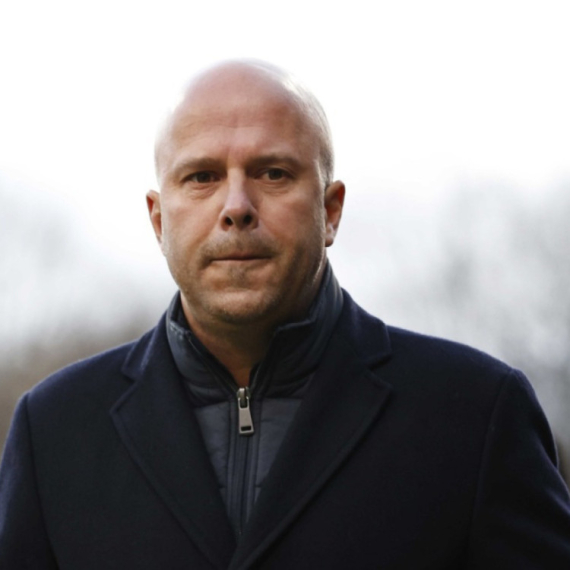
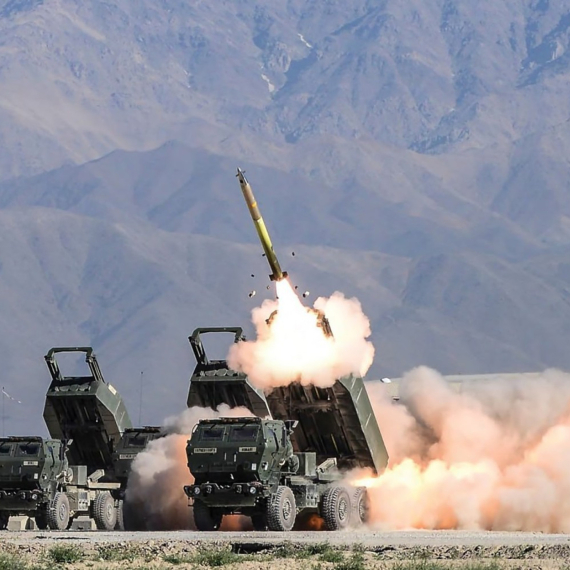

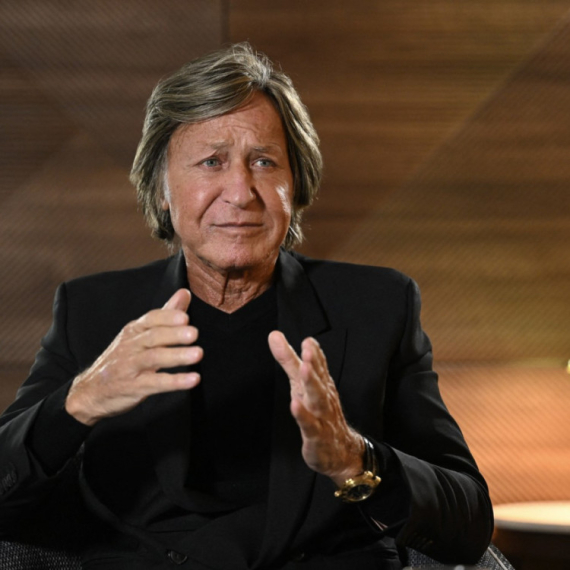



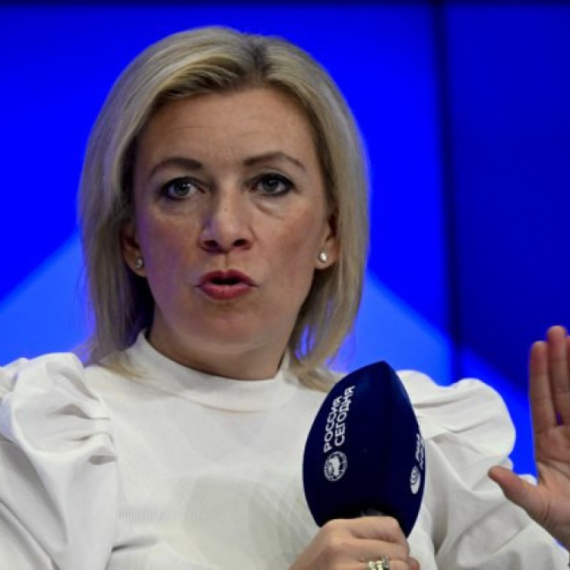
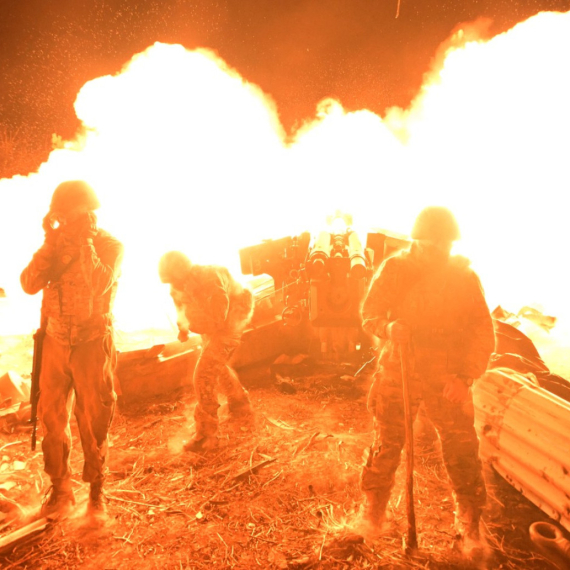


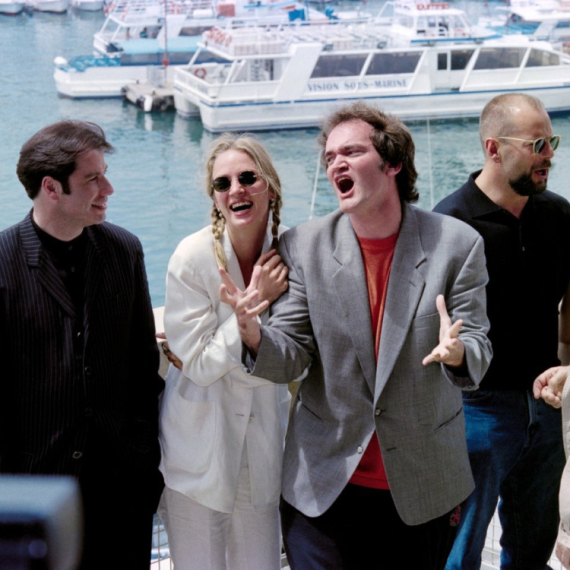
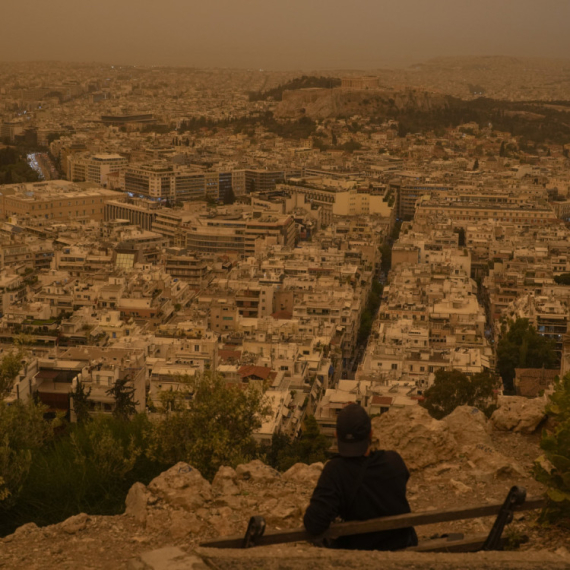




































Komentari 33
Pogledaj komentare